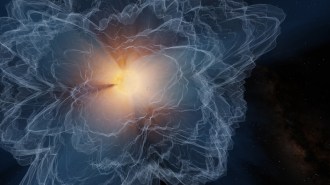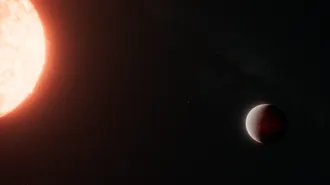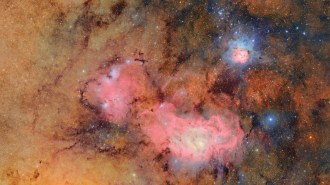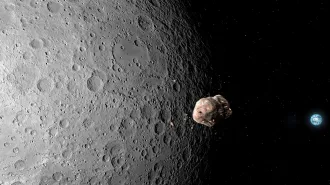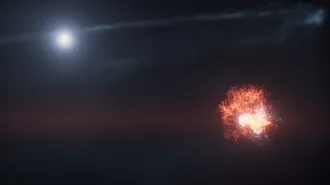Spin around quickly for a long period of time, and you’re likely to lose your balance and fall. Strangely, a similar thing can occur with orbiting bodies such as a planet. Spinning on its axis for millions of years, a planet’s surface features can shift position over time, upsetting its balance. If a major shift occurs, the planet might even tilt over.
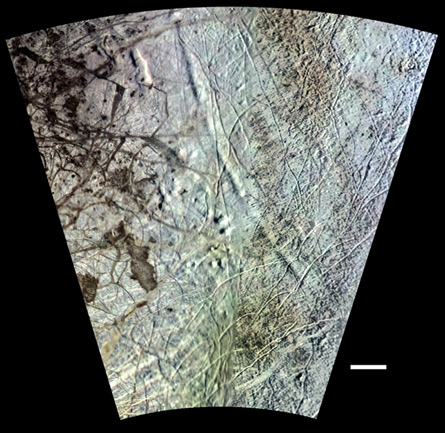
Now, scientists say such a shift actually happened on Jupiter’s large icy moon Europa. Recent images taken from three different spacecraft — Voyager, Galileo and New Horizons — provide the clues.
The images show three deep troughs curving hundreds of miles across the moon’s surface. Researchers analyzed the size, shape and location of the troughs and compared them to models. The study suggests that the depressions were formed when Europa’s thick, icy surface slid a whopping 80 degrees — nearly a quarter-turn.
What would trigger such a massive maneuver? A heavy buildup of ice at the poles might do it, scientists say. A spinning body, such as a planet, is most stable when its mass is farthest from its spin axis, or axis of rotation. A concentration of heavy polar ice could have knocked Europa off kilter, moving the polar regions toward the equator.
This strange phenomenon, called “true polar wander,” would normally take millions of years to play out. But evidence suggests Europa’s icy shell may have migrated over just a few decades. Why?
Scientists believe Europa’s heavy ice shell floats on top of a hidden ocean. The sliding of the moon’s surface provides further evidence for this notion. After all, moving 300,000 trillion metric tons of surface weight nearly 90 degrees would be very difficult unless it was floating on water, scientists say.
The study provides another intriguing idea: If an ocean lies beneath the moon’s icy surface, it just might harbor life.
Power words:
Axis An imaginary straight line around which an object turns. For a rotating sphere, such as the Earth, the two ends of the axis are called poles.
Europa One of Jupiter’s moons
Planet An object in outer space that moves around a star, such as the Sun, and that is larger than an asteroid. A planet does not produe its own light but shines because it reflects the light of the star that it moves around.
Going Deeper
